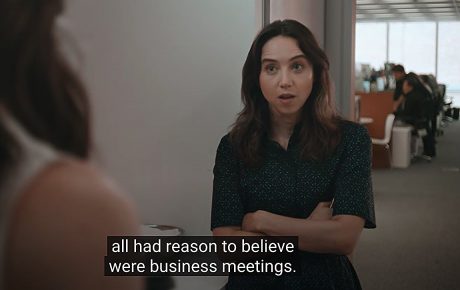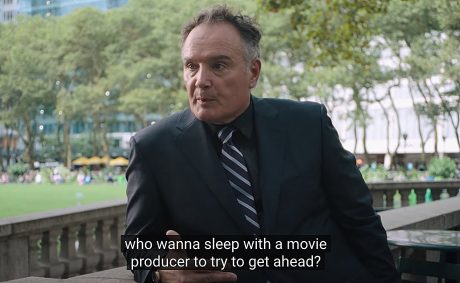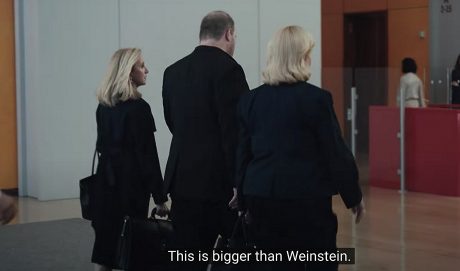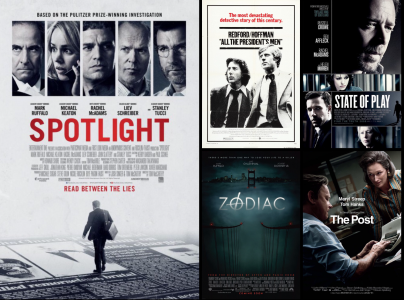A friend was a tad skeptical about the trailer for Maria Schrader‘s She Said (Universal, 11.18), which popped this morning. Actually two friends were, but this film is going to sail through.
“No, no…this is good,” I replied. “I can feel it. It has discipline, tension…first-rate acting from Carey Mulligan, Zoe Kazan and, as Weinstein employee Zelda Perkins, Samantha Morton. A well-honed screenplay by Rebecca Lenkiewicz. Nicholas Britell‘s music is a little overbearing** but this is Spotlight again.”
This is a Best Picture contender — no question, no doubt. If Spotlight can get there, this can too.
The victims weren’t children being molested by priests and some who were invited to Harvey’s first-class hotel rooms had to be at least wary of what might happen, but this is one of those social justice, social portraiture flicks that can’t miss, at least as far as a Best Picture nomination is concerned.
“Apparently Harvey isn’t played by anyone. Well, he is, but not as a speaking character with a puss. There’s a clip of a big fat guy we see from the rear, but we don’t see his face. We hear Harvey’s voice on a speakerphone during a conference call, but his voice isn’t deep or punchy enough.”
A guy who’s allegedly caught a research screening:
“Better than a TV movie. Not sure about Best Picture, but Samantha Morton and Carey Mulligan are the MVPs. Very intelligently made and well-directed. They smartly show the effect of the abuse. Victims go back to the hotel rooms, reenact what happened in the bed and shower, but with their clothes on. It’s very Spotlight, maybe too much so. It also has a fantastic ending. We never get to see Weinstein’s face, only see his back and hear his voice.”
Pic is produced by Plan B’s Brad Pitt, Dede Gardner and Jeremy Kleiner.
Lenkiewicz’s screenplay is based on Jodi Kantor and Megan Twohey’s “She Said.”

Posted on 6.2.17: “Assess any chapter in 20th Century cinema and it’s easy to point to this or that great film. It’s a little trickier to figure out which great films were honestly and artfully reflecting basic truths about their times. John Ford‘s The Grapes of Wrath, Howard Hawks‘ Scarface, William Wyler‘s The Best Years of Our Lives — that line of country. As opposed to films that shovelled wish-fulfillment bullshit, which, I realize, can deliver a certain kind of roundabout truth.
“For me the most lasting and resonant trait of any world-class film is a manifest reflection of the times and culture from whence it came, and almost always in some kind of profound light, or at least with a modest dose of spiritual nourishment or realignment, even if it’s bitter.
“I’ve always regarded The French Connection as a tangy, highly charged capturing of early ’70s New York City, when things weren’t so great economically or infrastucturally but when pugnacious street attitude and flavor were abundant. Anything but heart-warming, but a great urban film.”



** Howard Shore‘s Spotlight score was sublime…just right, just enough, perfect.
